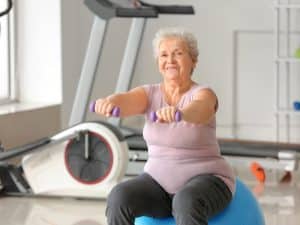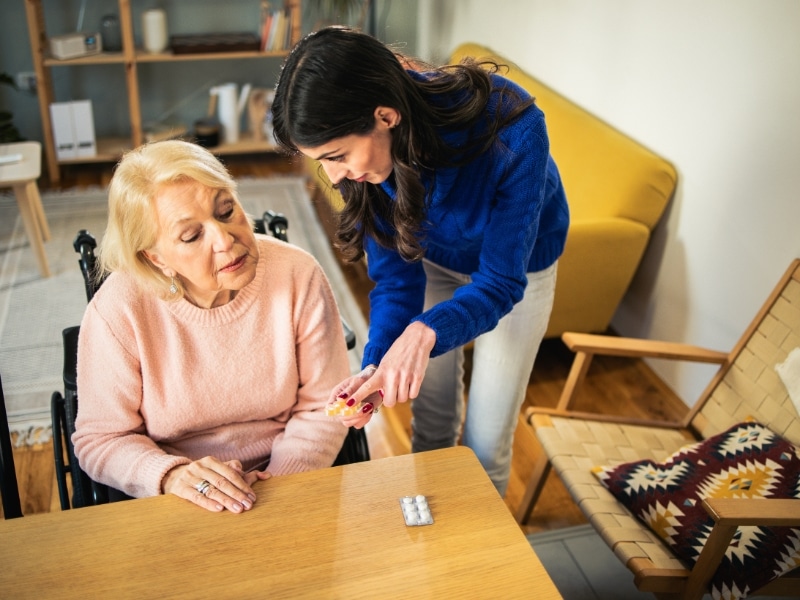Maintaining daily independence becomes harder with age, but the right kind of help can make a world of difference. Elderly support isn’t about taking over—it’s about stepping in with care, strategy, and empathy. From safety to emotional well-being, targeted support helps seniors navigate life with more ease and dignity. When routines are preserved, and confidence is restored, older adults don’t just cope—they thrive. If you’re exploring options for someone close to you, understanding how elderly support enhances everyday life will give you the clarity needed to choose wisely.
What challenges do seniors face without proper care?
When care is missing, life’s basic routines can quickly turn overwhelming. Here are the risks older adults face without consistent support:
- Physical decline: Seniors may struggle with walking, balance, or strength, leading to frequent falls or mobility issues. This can quickly reduce confidence and restrict independence, especially when injuries go untreated or movement becomes painful.
- Cognitive confusion: Without reminders or structure, even sharp minds can get muddled. Missed medication, skipped meals, and disoriented routines become more common, impacting memory, mood, and overall health.
- Social isolation: Limited mobility or hearing issues often lead to withdrawal. Over time, this creates emotional loneliness that weighs heavily on well-being, especially for those who live alone or have lost their partner.
- Unstable environments: Unattended homes can become unsafe—cluttered walkways, forgotten stovetops, or inadequate lighting put seniors at daily risk. These small hazards often go unnoticed until something serious happens.
The earlier families consider choosing the best elderly support providers, the easier it is to address these challenges before they escalate or become emergencies.
Why do families delay seeking elderly support?
It’s not uncommon for families to wait too long before reaching out for help. Here are the common reasons elderly support is postponed:
- Fear of losing independence: Many older adults resist the idea of help, fearing it signals a loss of control or capability. This can cause friction when loved ones try to step in.
- Lack of awareness: Gradual decline is hard to spot when you see someone every day. Subtle changes in hygiene, diet, or memory are often dismissed until a crisis arises.
- Busy schedules: Family caregivers often juggle full-time work and parenting, making it challenging to closely monitor changes or coordinate services in a timely manner.
- Cultural stigma: In some households, asking for help is seen as a failure rather than forward planning. This hesitation can delay essential care by months or even years.
Families who understand the value of domestic care that supports elderly well-being are often better prepared to ease support into everyday life without creating stress or resistance. Early conversations can prevent tension later and open up options for personalised care planning.
How does elderly support improve mental and physical well-being?
Good support isn’t just practical—it reshapes how a senior feels day-to-day. Here are the benefits of support on health and mindset:
- Better physical safety: Scheduled check-ins, mobility support, and home adjustments reduce the chance of injury and build daily stability. Even minor improvements—like railings or ramps—can make a big difference.
- Improved mental health: Engaging in conversations, laughter, and routine interaction combats isolation and reduces symptoms of depression or anxiety. Feeling seen and heard adds meaning to each day.
- Enhanced nutrition and hygiene: Support workers ensure meals are balanced, medications are taken, and dignity in personal care is preserved. This level of attention can dramatically improve quality of life and prevent long-term complications.
- Steady routines: Predictable rhythms help maintain cognitive clarity and reduce stress, especially for those managing dementia or memory loss. Familiarity and flow help seniors feel oriented and in control.

Services focused on personal care support for elderly independence promote active participation rather than passive care, encouraging seniors to stay involved in their routines with the right amount of guidance.
What role does elderly support play in fostering independence?
Paradoxically, the right kind of help enables older adults to do more, not less. Here are the ways support encourages autonomy:
- Task simplification: Care workers break complex tasks into easier steps, allowing seniors to remain involved without becoming overwhelmed. Instead of doing the laundry for someone, they fold it together.
- Confidence building: Reinforcement and encouragement empower seniors to attempt things they’d otherwise avoid, restoring a sense of capability. Even small successes, like preparing breakfast, help rebuild self-belief.
- Use of adaptive tools: Simple devices—from jar openers to shower chairs—allow older adults to perform tasks safely on their own. With the right tools, everyday actions become achievable again.
- Routine reinforcement: Rather than taking over, workers support existing preferences, helping the person feel respected and in control. Familiar routines support cognitive function and emotional well-being.
This collaborative style is why many families prioritise involving families in home care package planning, ensuring the senior’s voice remains central, and the service remains flexible as needs evolve.
Which daily tasks become easier with elderly support services?
Support services vary depending on the level of care required. Some seniors need occasional help, while others benefit from daily guidance. Here are the key differences between light, moderate, and full elderly support:
| Support Level | Typical Tasks Covered | Key Benefits |
| Light Support | Weekly cleaning, meal prep, and transport to appointments | Maintains independence with minimal disruption |
| Moderate Support | Daily hygiene help, medication reminders | Balances safety with routine and familiar freedom |
| Full Support | 24/7 care, mobility aid, personal care, home modifications | Maximises comfort and safety for high needs clients |
This structure helps families match services to current needs and adjust as those needs change. Whether your loved one is still independent or needs round-the-clock care, elderly support scales with confidence and clarity.
Why emotional connection is just as vital as physical help
Practical support only goes so far. Here are the emotional benefits of strong, consistent care relationships:
- Meaningful conversation: Small chats over tea or during a walk create human moments that counter loneliness, especially for those without nearby family.
- Shared experiences: From reminiscing to laughing over daily events, emotional connection adds richness to life. These bonds build trust that strengthens every interaction.
- Comfort during vulnerability: Dressing, showering, or managing health issues feel easier when trust is present. Familiar caregivers help reduce embarrassment and stress.
- Improved cooperation: Seniors are more likely to engage in routines when they feel safe and heard. Emotional rapport improves the effectiveness of care across the board.
It’s the difference between doing a job and forming a relationship. That connection often becomes the most valued part of a support plan.
Elderly support contributes to a safer, fuller life
When thoughtfully planned and gently delivered, elderly support is life-enhancing. It helps older adults remain at home, maintain relationships, and hold on to their routines. The focus shifts from simply surviving the day to engaging in it with purpose. This sense of rhythm and confidence doesn’t just reduce risk—it boosts pride and personal worth.
Support also eases pressure on families, offering peace of mind and room to simply enjoy time with their loved ones again. For those exploring the next steps, personalised advice from Montessori Care experts can provide clarity rooted in experience and empathy.
